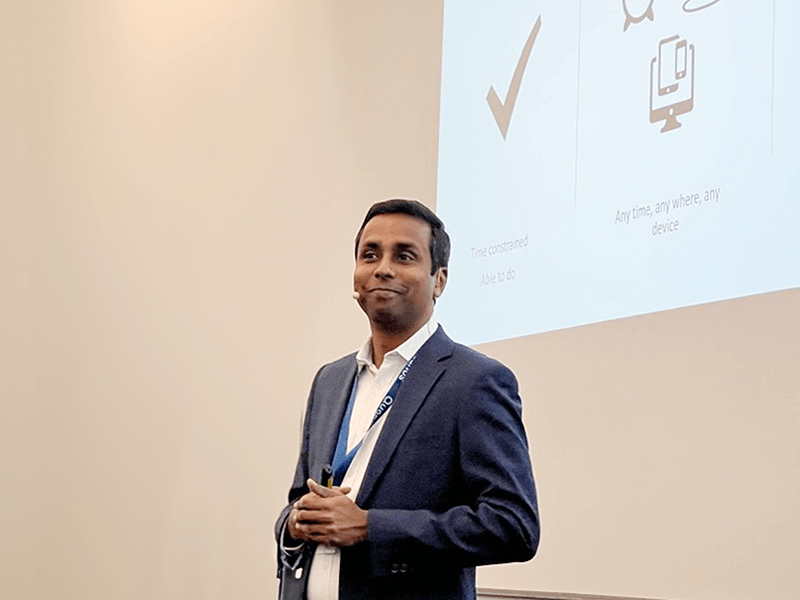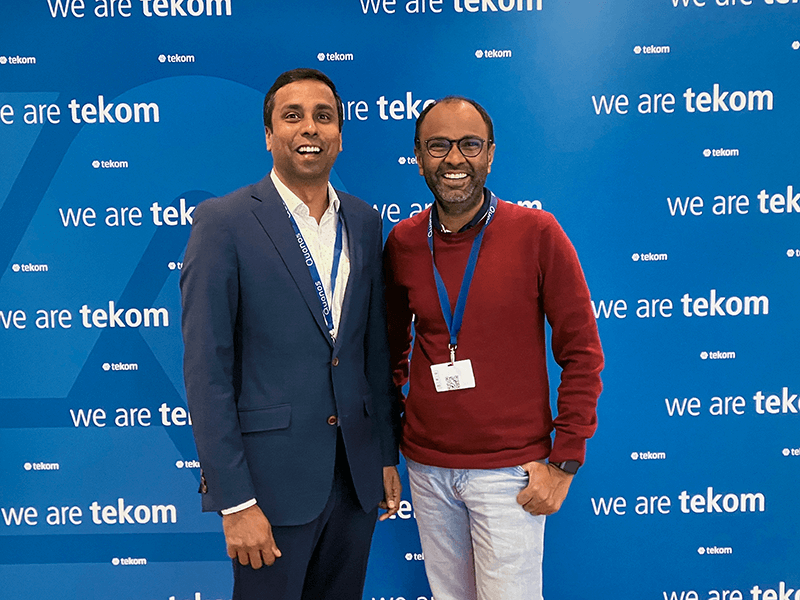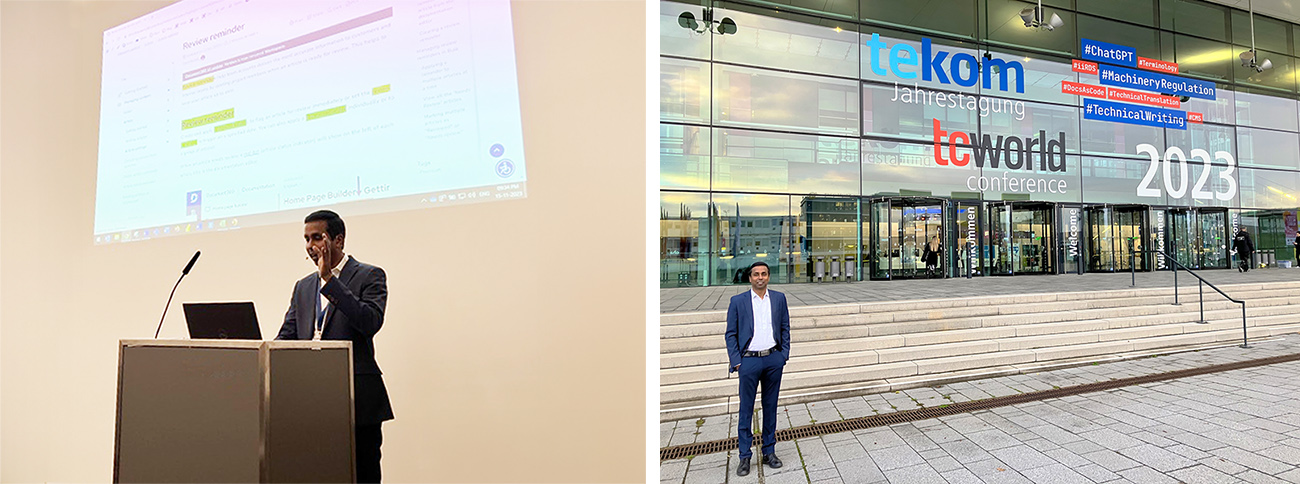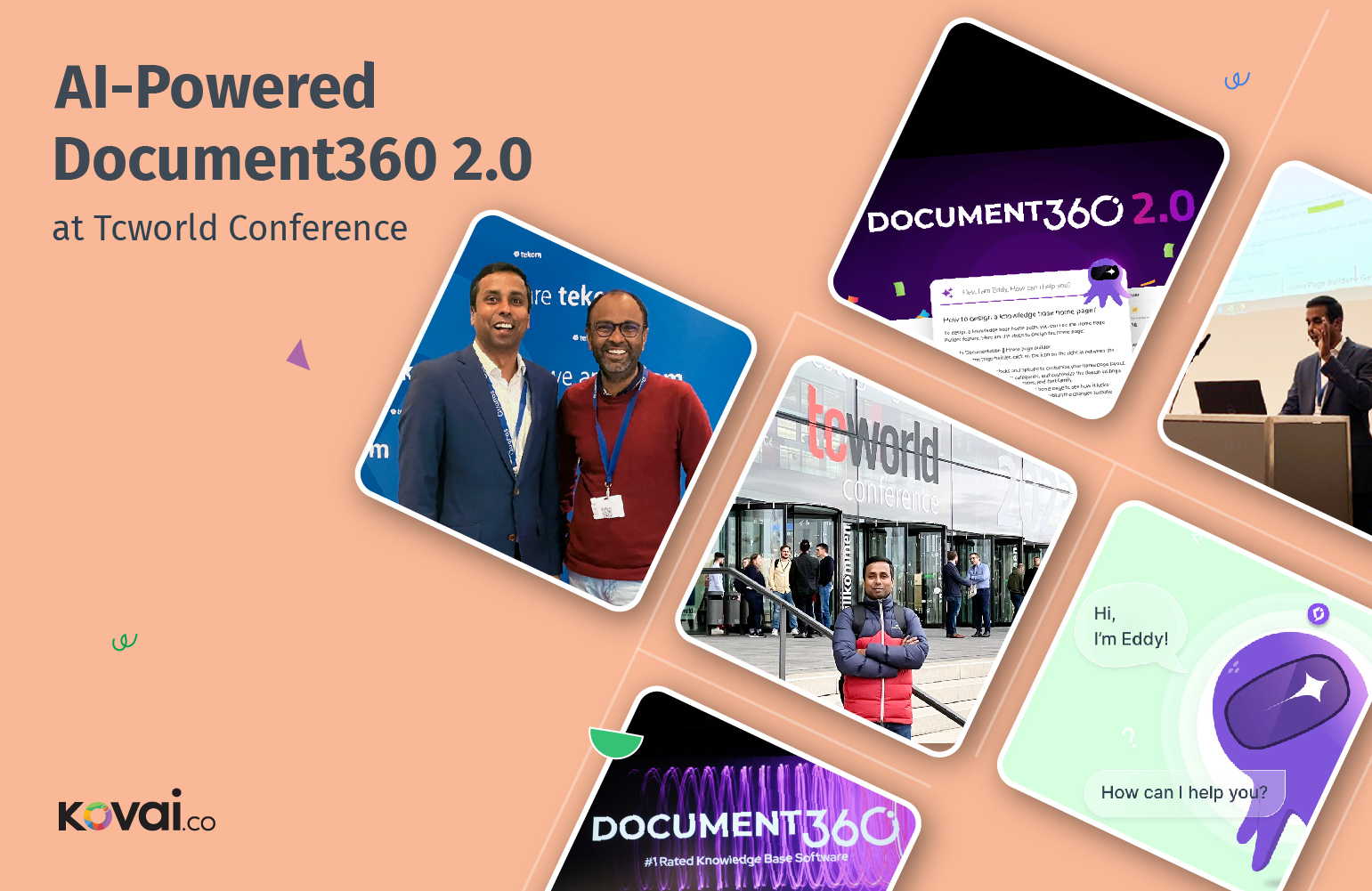Document360 recently showcased its innovative strides in artificial intelligence at the tcworld conference, one of the world’s premier gatherings for technical writers in Europe. Seizing the opportunity, Document360 unveiled the latest AI advancements in the realm of technical writing, highlighting how generative AI is revolutionizing the creation, authoring, and consumption of technical documentation. Two weeks prior, Document360 launched an entirely revamped version, Document360 2.0, equipped with cutting-edge generative AI technology, robust analytics, and our integrated AI assistant—Eddy.
The Document360 team, led by our founder and CEO, Saravana Kumar, along with our Head of Data Science, Selvaraaju Murugesan, presented in Stuttgart, the host city of the tcworld conference. Document360 hosted two sessions at the conference: A 3-hour workshop on “Writing AI-friendly content” on the first day and a 45-minute presentation on the second day titled “New Skills Tech Writers Need to Develop for the AI World.” Both sessions attracted a full audience.
About Tcworld Conference
The tcworld Conference, held annually in Stuttgart, stands as one of the largest gatherings of technical writers globally. Drawing over 4,500 technical writers from countries worldwide, including Denmark, Israel, Ukraine, Germany, Sweden, Norway, and the USA, the event provides a unique platform for industry professionals. Document360 initially learned about tcworld Conference and magazine during our participation at NORDIC TechKomm in 2022. This exposure led Selvaraaju to contribute papers to tcworld magazine, ultimately resulting in the publication of two papers and an invitation for Document360 to present two sessions at the tcworld Conference.

Why We Attended Tcworld
Document360’s objectives at Tcworld were to gain insights into the roles of technical writers, the industries they serve, geographical diversity among attendees, and the tools used for documentation. Our goal was to assess if any additional measures were required to capture the market. Selvaraaju stated, “The primary goals were to gather market intelligence, explore partnership opportunities, and identify tools for potential integration.”
Unveiling AI Advancements in Technical Documentation
Document360 capitalized on the opportunity to unveil how generative AI is poised to revolutionize technical content creation. The audience learned how generative AI in Document360 simplifies and enriches the content creation process by summarizing articles, providing metadata, and generating meta tags at the click of a button. Authors using Document360 can alter the tone, length, and quality of an article effortlessly, with generative AI handling the rest, reducing time consumption by over 50%. Our built-in AI assistant, Eddy, was also showcased, now capable of delivering accurate answers while maintaining a robust security feature.

Knowledge Sharing
Selvaraaju’s session, “Writing AI-friendly content,” was a resounding success, emphasizing the evolving landscape of AI technology. He urged tech writers to adapt their approach, emphasizing that while brevity is crucial for human readers, AI content should be detailed, explanatory, and conversational. Selvaraaju advised creating extensive FAQs for each section to enhance AI’s contextual understanding. In the second day’s session on “new skills tech writers need to develop,” he shared insights such as incorporating rich metadata and images to enhance content.

Meeting Document360 Customers
Selvaraaju took the opportunity to connect with one of our German customers, gaining valuable insights into their experience with our product. Document360 places a priority on building personal relationships through in-person meetings whenever feasible.
Conclusion
The trip provided valuable insights into the European market’s expectations, awareness of generative AI, burgeoning industries, and potential solutions tailored to their needs. From a marketing perspective, we successfully heightened brand awareness for Document360 among a vast, diverse audience of our primary target users—technical writers.

